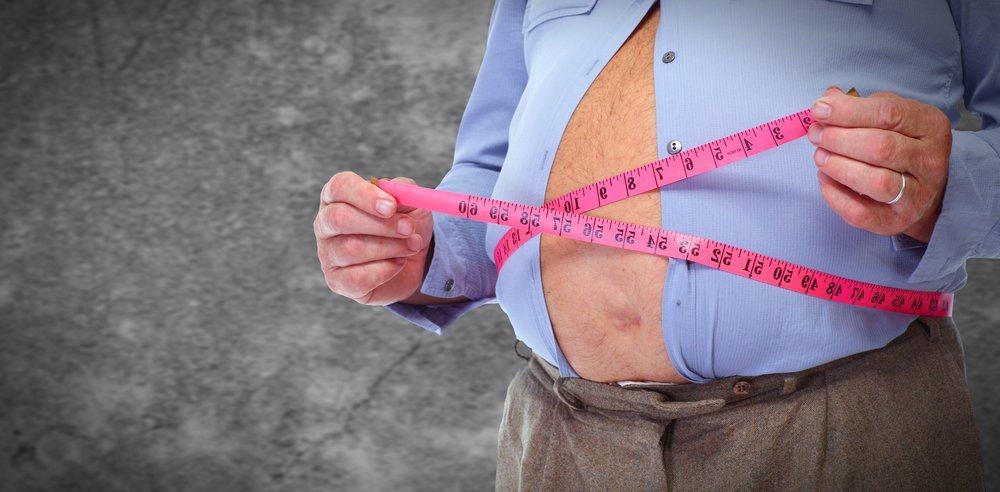Contents:
Medical Video: Everything you think you know about addiction is wrong | Johann Hari
In the midst of a society that glorifies the slender, slender, high-bodied body shape, it's not surprising that sneering at those who seem far from the word "ideal" has become a ingrained habit. Whether it's whispering a neighbor talking about the RT's mother who said that her weight is even more fertile after marriage, or writing scathing criticism on your favorite idol social media account about her body that is a little more "chubby". Like it or not, consciously unconscious, pouting and mocking have become a part of everyday life.
"When to diet?"
"How come snacking continues?"
"If you do it, you must be more cute, bro!"
Many of these comments actually mean noble. They really believe that comments like this can boost the motivation of overweight or obese people to start trimming fat in the stomach. Unfortunately, the opposite is true. A number of study evidence confirms that obese comments that are nosy are ineffective and can actually be fatal. This is the reason.
Fat comments actually triggered them to eat more
Overweight and obese people who endlessly receive fat comments about their body shape are more likely to experience weight gain than those who receive positive motivation and support, reported by Tech Times.
The researchers believe that this effect was due to the comfort and mood factor they got from "protecting" food after receiving criticism. The stress they face in response to scorn and ridicule can increase appetite for unhealthy foods: high in sugar and calories. Weight discrimination has also been shown to make a person's self-esteem thinning to engage in physical activity because they are afraid of being a mockery of the general public.
READ ALSO: How to Prevent Diabetes If I'm Fat?
Researchers from University College London (UCL) investigated nearly 3,000 men and women, aged 50 and over, in this study. Each subject is weighed in four separate years. They were also asked about the "positive" scorn and comments they might receive because of their weight.
During the study, people who experienced fat comments and sharp criticism gained weight up to fifteen kilograms and were six times more likely to be obese than those who did not receive oblique comments in any form. Those who did not receive criticism about their body managed to lose an average of only about 5 kilograms. Men and women report the same level of weight discrimination.
READ ALSO: 5 Most Dangerous Weight Loss Diets
Studies show that many obese people have hormonal dysfunction and brain chemicals that affect hunger and appetite, causing overeating and weight gain. When this hormone is triggered, followed by more food than is needed for body fuel, the center of appreciation in the brain is stimulated, and destructive patterns that are similar to drug addiction become brightly lit.
But the result is not always addicted to eating.
Fat comments trigger a risk of eating disorders and depression
The human body does not all look exactly the same and pursues a uniformity of unrealistic "ideality", for many people it will only trigger dangerous eating disorders such as bulimia and anorexia - which currently affect more than 5 percent of women worldwide. Not that men will be immune from these two eating disorders, but data evidence that supports this incidence is still very limited to be certain.
Even sadder is the fact that people who are obese often share the same attitudes and opinions with society in general about the perception of a fat body. Obese people actually label themselves negatively, said Dr. Kimberly Gudzune from Johns Hopkins University School of Medicine, reported by NY Times. They are ashamed and blame themselves for being fat and having the same thoughts about other people who are also obese.
"Self-hatred" said Dr. Gudzune, "can be a prominent feature" of obesity. Therefore, mental health problems are more commonly found in those who have experienced severe weight discrimination; the risk of depression is almost three times higher, according to a study from the Rudd Center for Food Policy and Obesity at Yale University, quoted from NCBI.
READ ALSO: A Guide to Living the Mediterranean Diet, the Diet that is Considered to Be the Healthiest
To further investigate this destructive mind-body relationship Jean Lamont, Ph.D. reported from Shape, theorizing that women who feel ashamed because their bodies are not ideal also feel ashamed of their natural body functions such as menstruation, sweating and eating. This then causes women to lack self-confidence and refuse to care for themselves, making them sick in the process.
Have you ever canceled coming to a beauty salon because you thought you were too fat to be there? Or eat junk food so badly because you hate what you see in the mirror? Basically, Lamont says that if you don't like your body then you won't want to take care of it - a sad situation that many of us have experienced firsthand. Opportunities to develop infections and chronic diseases also increase due to higher cortisol levels, weight gain, and stress.
Suicide is a greater and fatal risk when clinical depression is present; one study with nearly 2,500 participants reported study subjects who were considered "very obese" 21 times more likely to display suicidal behavior. They have tried suicide 12 times more often.
Obesity is a disease, not just neglect to maintain weight
What is also often overlooked by the public is that health campaigns intended to prevent obesity can actually worsen the stigma that is rotating in society, the researchers said. These community advertisements carry hidden messages that anyone really does kekeuh trying - with diet and exercise routine - can be instant skinny.
READ ALSO: 6 Types of Obesity: Which Are You?
As adults, people who are overweight and obese often struggle to try various types of weight loss programs. This is triggered by the assumption that the people who maintain the attitude and opinion that the willingness to cut large amounts of weight is in the power of obese people if they really try.
"This public opinion implies that being fat is their own fault and weight is a matter of will," said Judith Matz, psychotherapist and writer. Unfortunately obesity is not that simple. Believe me. If only they could be thin, with all their determination and intention, they wanted to. They certainly don't want to be fat. Obesity of children is very stubborn to refuse improvement in both ways, said experts in obesity.
READ ALSO: Weight Drops, Doesn't Mean Reduced Body Fat
Dr. Michael Rosenbaum, an obesity researcher at Columbia University, explained that the idea that obesity is a disease is not yet well understood by most people. Obesity is a medical condition that is more complex than you thought. The idea that once you have lost weight means that you recover is wrong. Obesity is a growing disease. So, fat comments will only trigger unhealthy behavior that has been scapegoated: "eat only" with additional guilt, shame, and despair.
It's time to stop just commenting sideways about other people's body shapes and spreading hatred. Aside from being proven to be very ineffective at achieving weight loss goals, fat comments can actually worsen overall body health. Instead of insisting on using a nagging and passive aggressive approach, which will only be disastrous than good, encouraging lifestyle changes on the basis that it is better to be healthy and fit is the key - no matter the size and size of your body.












